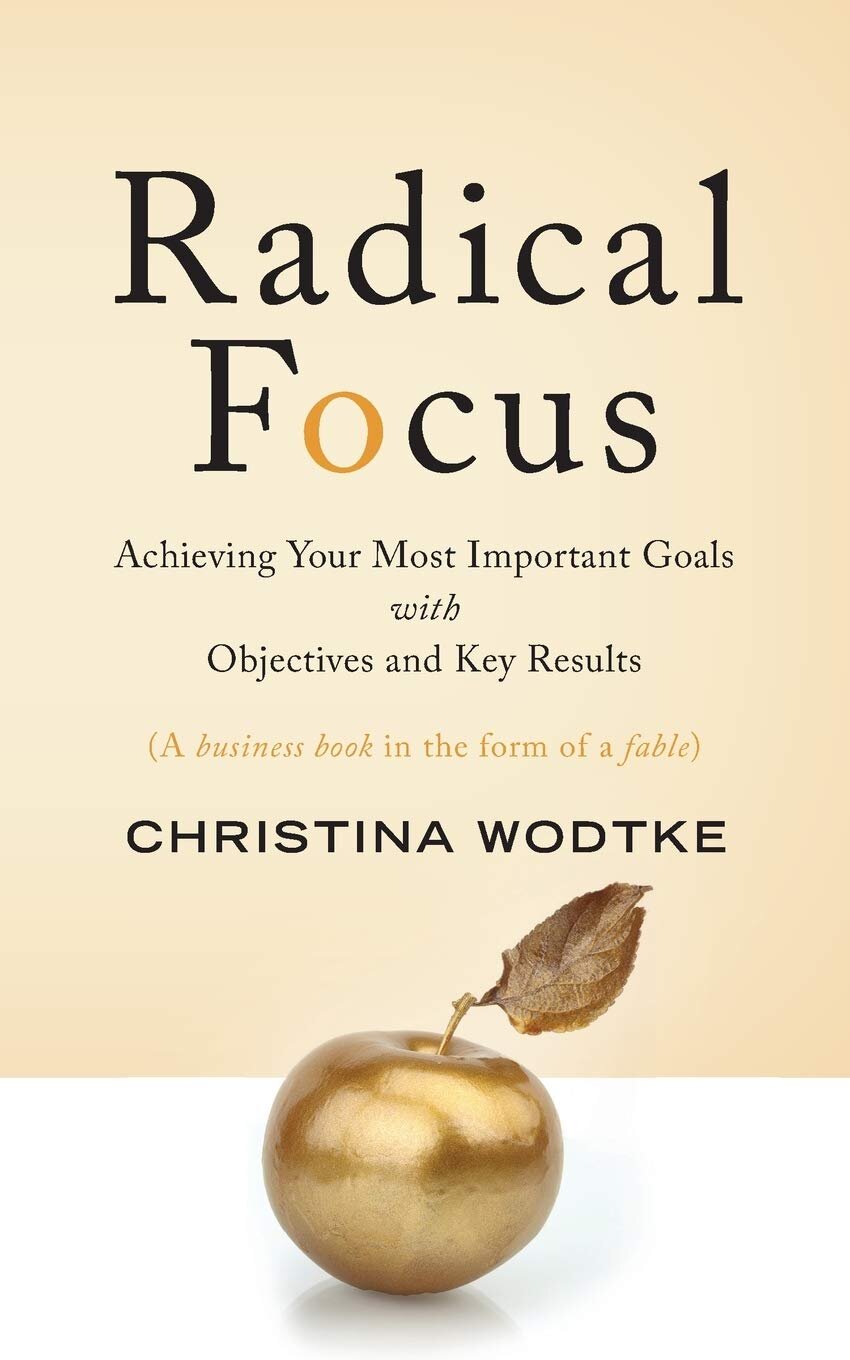Radical Focus – Christina Wodtke
Recommendation: 8/10. Date read: 7/14/21.
The best book that I’ve read on using objectives and key results (OKRs) to achieve your most important goals and focus on what matters. Wodtke advertises this as “a business book in the form of a fable” and its format doesn’t disappoint. Radical Focus follows a fictional case study of two entrepreneurs struggling to keep their startup alive. Throughout the story they find themselves struggling to communicate, not allowing their strategy to evolve, and trying to do too many things at once. The story brings the ideas to life without being overly prescriptive. The second half of the book then provides a tactical guide to implementing OKRs in an effort to help both you and your team realize your most ambitious goals.
See my notes below or Amazon for details and reviews.
My Notes:
Focus:
“A startup’s enemy is time, and the enemy of timely execution is distraction.” CW
“Select only one OKR for the company unless you have multiple business lines. It’s about focus.” CW
Weekly check-ins:
Objectives = inspiration for quarter. Key results = what happen if you do the right thing. DO NOT pick more than three key results. Set these with 50% confidence of achieving and every week give them a score out of 10 to assess confidence level. When you kick off the quarter, your confidence would be 5/10. As a starting place, think about usage, revenue, and satisfaction metrics as your KRs.
Health metrics: Sit below objective and key results. These are things you don’t want to forget or sacrifice while you aim to achieve key results. This could be customer satisfaction (don’t want to alienate current customers), team health, code health, etc.
This week: P1s and P2s, write 3-5 big things you’ll focus on this week to affect the OKRs. Don’t list everything you’re going to work on, just the things that must happen or else your objectives will be at risk.
Next 4 weeks, pipeline: Things you expect to happen in the next month so stakeholders aren’t caught off guard.
Example of how this might look:
Objective: Establish clear value to restaurant suppliers as a quality tea provider
KR: Reorders at 85% (5/10)
KR: 20% or reorders self-serve (5/10)
KR: Revenue of $250k (5/10)
P1: Close deal with TLM Foods
P1: New order flow spec’d
P1: Three solid sales candidates in for interview
P2: Create customer service job description
Weekly status emails:
Lead with your team’s OKRs, and how much confidence you have that you are going to hit them this quarter.
-OKRs remind everyone why you are doing the things you do
-Confidence is a guess of how likely you feel you will meet your key results. 1 is never going to happen, 10 is in the bag. Mark red when it falls below a 3, green when it passes a 7.List last week’s prioritized tasks and if they were achieved. If not, explains why (goal is to learn what keeps org from accomplishing what it needs to).
List next week’s priorities (pick three P1s)
List any risks or blockers
Notes (hiring updates, reminders about team events, open questions, opportunities to shadow discovery, etc.)
Vision:
“When you are tired of saying it, people are starting to hear it.” Jeff Weiner


